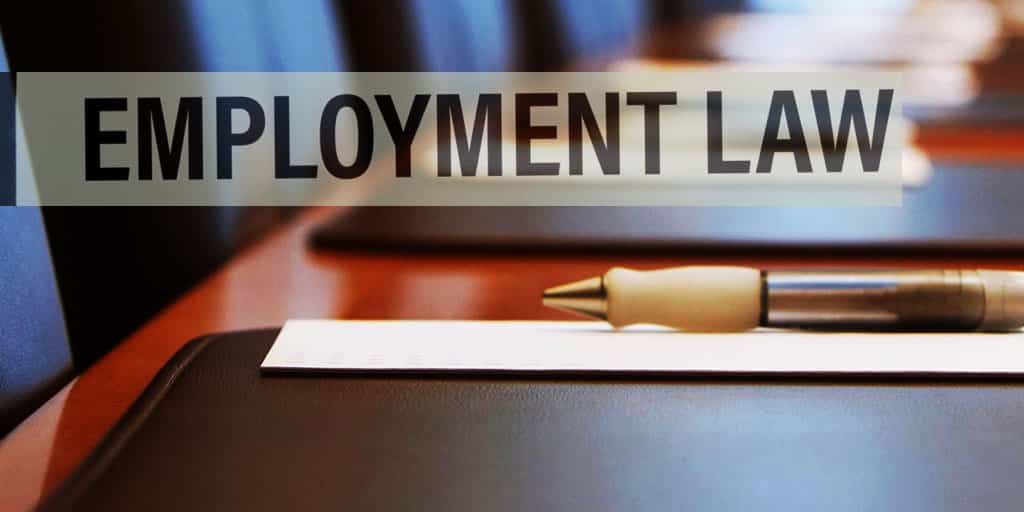
Workplace discrimination remains a significant concern in the workplace. A 2023 Equal Employment Opportunity Commission (EEOC) report saw an increase in handling of over 25% in emails and a nearly 10% increase in calls, totaling to 522,132 calls and 81,055 new charges filed.
A lawyer can effectively address issues in the workplace. An Irvine employment lawyer says that these legal professionals can clear up any confusion by using their expertise in employment law and conflict mediation.
Learn how to resolve workplace issues and why hiring an employment lawyer to address the issues is beneficial.
Understanding Workplace Conflicts
Workplace conflict awareness is important in promoting a healthy atmosphere. Workplace conflicts result from different personalities, communication styles, and expectations. Early identification of workplace issues is important to prevent further escalation.
Be straightforward and confront your colleagues if you notice tension in the workplace. Ignoring it will lead to misunderstanding and bitterness, which in turn will affect team morale and productivity. Transparent communication helps your coworkers express their concerns and feelings.
Be mindful of your attitude during workplace disagreements. Admitting a mistake or misunderstanding will be enough to defuse the situation and create a collaborative atmosphere.
Legal Compliance and Labor Laws
Legal compliance and labor laws play an important role in promoting a healthy and equal workplace environment. Companies that follow these regulations create a culture in which the employees feel valued and protected.
Lengthy and costly legal issues can be avoided through knowledge and continuous implementation of the labor laws relevant to an organization or industry.
Familiarize yourself with the Fair Labor Standards Act (FLSA). This labor law establishes the legal minimum wage and overtime pay for employees. Another employment law is the Family and Medical Leave Act (FMLA), which allows eligible employees to take unpaid leave for family and medical reasons.
There are non-discrimination laws, such as Title VII of the Civil Rights Act, which prohibits workplace discrimination based on individuals’ race, color, religion, gender, or nationality. Always consult with a lawyer to check if the company is updated and compliant with labor laws.
Mediation and Conflict Resolution
Mediation and conflict resolution are effective methods to enhance workplace dynamics. Engaging the services of a neutral third party can help address workplace issues by facilitating the dialogue between the conflicting parties involved. Openness, understanding, and sharing may foster good communication for all involved.
Mediation is a cost-effective alternative to litigation. It enables you to deal with disputes before they turn into larger conflicts with destructive effects on the team’s morale and productivity.
Utilizing creative conflict resolution strategies effectively may resolve workplace issues and reinforce relationships in your organization.
Contract Disputes and Negotiations
One common reason for workplace problems includes arguments over one’s employment contract.
Review your contract very carefully to determine exactly which terms are in question. Having clear documentation is helpful in establishing job responsibilities and performance expectations.
It is advised to tackle this issue in a straightforward manner and directly speak with the involved party. Dialogues have a high possibility of solving each other’s misunderstandings before conflict flares up.
If the discussions further lead to arguments, then it is a good time to consult a legal professional. A highly skilled attorney can translate the contract language and increase the chance of a favorable outcome that aligns with your interests.
Your lawyer will be your primary negotiator in these discussions. Having excellent negotiation skills will be helpful in formulating a solution amenable to both parties or altering amendments in contracts.
Employment Rights and Protections
Be aware of your rights as a worker. Having knowledge of these rights can protect you from discrimination, harassment, and mistreatment.
There are federal laws that provide protection to employees. These laws include an unbiased salary and freedom from retaliation for reporting misconduct. You must be aware of the different types of leave that an employee is entitled to. These leave rights include sick leave, family emergency leave, and parental leave.
If you suspect that your rights have been violated, you should document the incident. The documentation will serve as evidence when you raise the issue with your employer or seek legal advice.
An employment law lawyer can guide you through these challenging situations. Your attorney will explain your rights, help you in negotiation, and offer advice on the next steps to take.
Investigating Workplace Complaints
Gather all the relevant information associated with the workplace issue. Hear the side of the complainant’s story to understand his/her perspective.
Next are interviews of witnesses and all parties involved. Each of these should be kept under wraps so as to safeguard everyone’s privacy. Document everything related to these inquiries; time, dates, and particulars of conversations should be noted down.
Objectivity and fairness must be maintained during the recording of all data and evidence review. It should not depend on personal conclusions or biases but rely on pure facts. Having legal counsel would help in confirming the applicable workplace statutes and regulations.
Developing Workplace Policies
Policies should be set in place after dealing with complaints to control the behavior and procedures of the employees in the office in case of any arising conflicts.
These policies must be comprehensive and specific to the needs of your organization. The first step would be identifying the key areas in which guidelines would be necessary, including attendance and harassment and overall performance expectations.
Upon drafting the policies, make sure these are written in clear, accessible language. Avoid any legal jargon that could confuse employees. Communicate these policies effectively. Hold training sessions to explain the policies and their importance.
Benefits of Early Legal Involvement
Engaging legal counsel at an early stage allows you to deal with complex laws and compliance. These legal professionals can provide helpful legal advice that contributes to your decision-making.
Settling disputes amicably can save your organization the precious time and money spent on core business service delivery.
Hiring a lawyer early on gives your organization early legal protection. Their skill and expertise allow them to suggest ways to promote a better environment within your workplace.
Conclusion
The primary advantage of having an employment lawyer on your side is the efficient resolution of workplace issues within your organization. If you spot signs of tension within your company, act quickly and don’t hesitate to invest in a skilled attorney. An employment lawyer can have a significant impact on solving your workplace problems.







